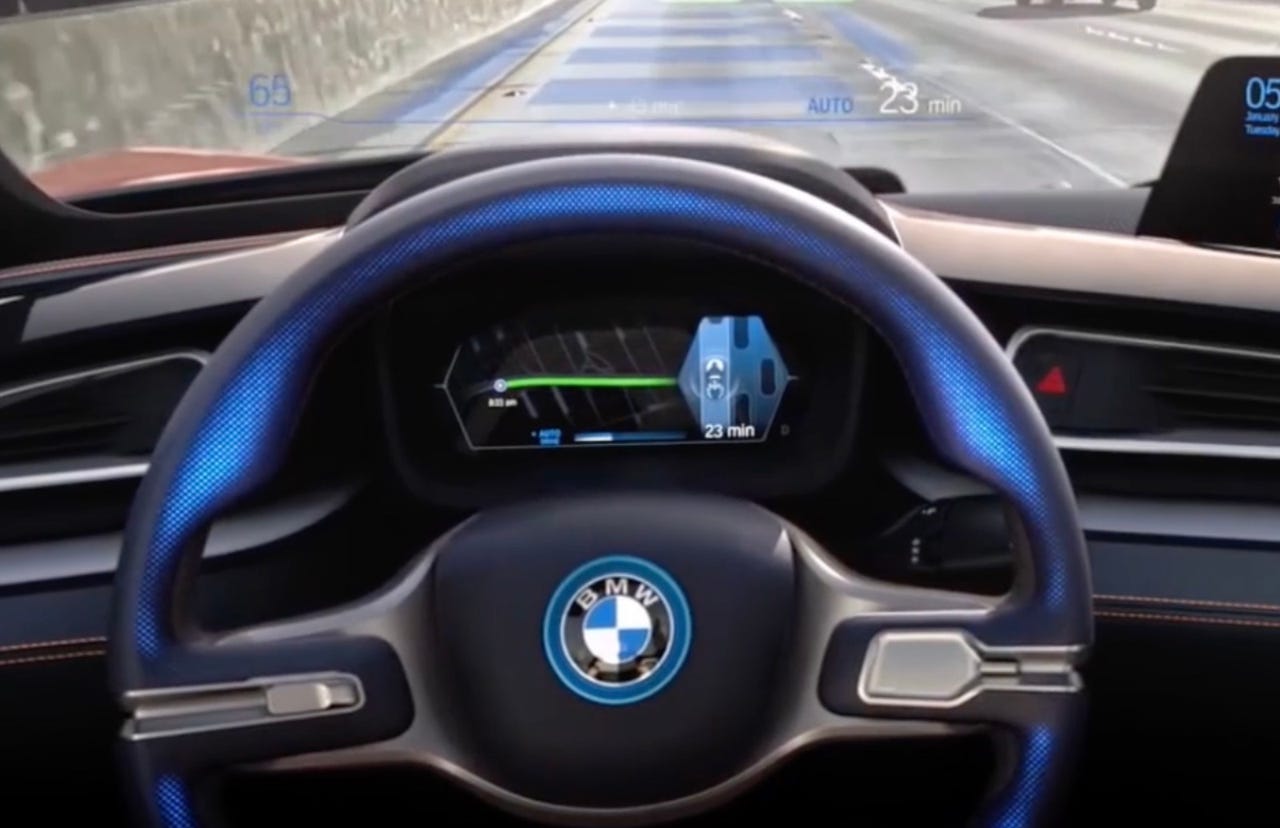BMW tests next-gen LiDAR to beat Tesla to Level 3 self-driving cars


Just a decade ago, the concept of self-driving cars might have seemed like something out of a science fiction movie, but now so much progress is being made that tangible steps are putting more and more autonomous vehicles on the road.
The latest example is the partnership between BMW Group and Innoviz Technologies to bring Level 3 autonomous driving to more vehicles through the development of next-generation LiDAR sensors.
Also: ChatGPT-powered voice commands are coming to Mercedes-Benz cars
Level 3 autonomy is where the vehicle can perform dynamic driving without human intervention. Tesla's Autopilot (for highways) and Full Self-Driving (for regular roads) have been stuck at Level 2 for years, despite many optimistic predictions from CEO Elon Musk that Tesla would reach Level 3 or above soon.
BMW and Innoviz have worked together for several years on LiDAR-enabled, highly automated technology that will be available on the BMW 7 Series later this year. The two companies are expanding their collaboration and focusing on second generation LiDAR technology with a B-sample phase, which is the stage of vehicle testing where the sample is incorporated into demo vehicles.
The results of the first phase will determine whether BMW Group will enter a serial development agreement with Innoviz with the purpose of bringing advanced automated capabilities to a broader range of vehicles in the BMW lineup, according to the release.
"We are very pleased to have Innoviz develop the first B-samples of this new LiDAR generation and hope that the results of the B-sample phase create a basis for a possible future extension of our collaboration," said Nicolai Martin, SVP Driving Experience BMW Group.
In addition to self-driving features, BMW also wants to use the technology to increase the safety of vehicles when humans are at the wheel. The release states: "The BMW Group and Innoviz have started this first phase to develop an expected first-ever LiDAR based Minimal Risk Maneuver (MRM) system in the future. The MRM acts as a secondary safety driving decision platform that will leverage the advanced performance, reliability, and resiliency of the InnovizTwo LiDAR to manage real-time driving decisions."
Also: Tesla's Full Self-Driving product is not what most people call 'full' self-driving
The knock on LiDAR technology has been that it is an unnecessary and expensive sensor. While Tesla has been a long-time leader in deploying autonomous vehicle features, it doesn't use LiDAR sensors in its vehicles, with Musk going as far as saying that "Anyone relying on LIDAR is doomed."
However, others, such as BMW Group's CEO, believe that LiDAR sensors are crucial in developing autonomous driving systems. LiDAR's greatest asset is its ability to detect objects on the road regardless of weather or lighting conditions.
"LiDAR is one of the critical technologies underpinning Level 3 or even higher automated functions. Optimizing LiDAR technologies and costs are the major challenges in order to bring Level 3 highly automated driving into the mainstream," said Martin.